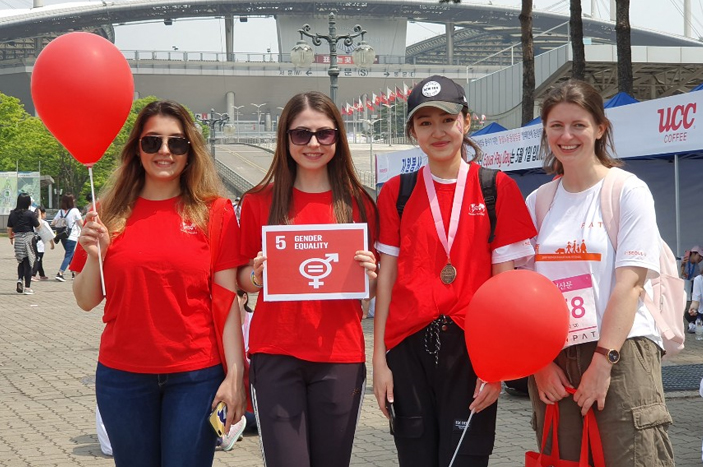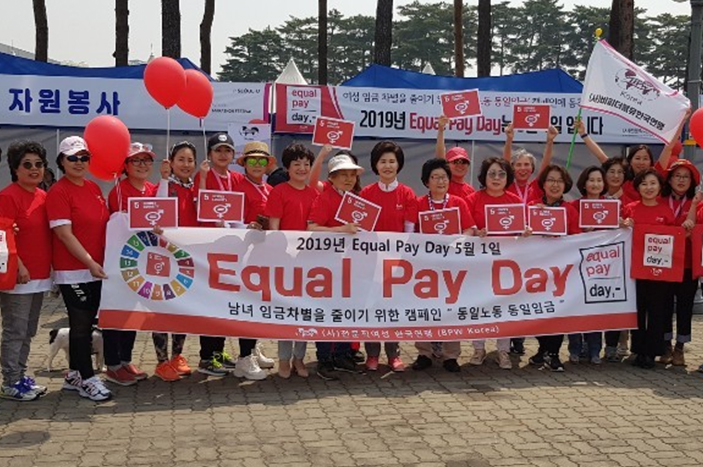Major Activities
Korea Federation of Business & Professional Women
HOME
Major Activities
Equal Pay Day
Equal Pay Day
|
Equal Pay Day campaign for the first time in Korea The Equal Pay Day campaign is a movement to recognize how much longer a woman has to work to earn an equal pay compared with men. BPW international member countries are deploying this campaign every year and are reducing gender wage gaps for full-time employees. The Korea Federation held the Equal Pay Day Campaign for the first time in Korea with members of each club in front of the Myeong-dong Art Theater at 12:00 pm on 25 May2011. Korea is taking a leading role in improving the status and empowerment of women, as well as making efforts to reduce gender wage gap every year by recognizing the highest gender pay gap among the OECD countries. In 2011, when the Korea Federation launched this campaign for the first time, the wage gap between men and women in Korea was 38.8%. This means that, if a man receives 1 million won per month, a woman will receive 612 thousand won for the same period. This means that in order to become the same wage as a man, a woman has to work 5 months and 25 days more. This was the reason for the equal pay day event on May 25th.
What is Pay Gap? Lower wage rates mean lower lifetime earnings for women, based on full time employment. It is unrelated to equal working hours. Equal pay means being paid equally for doing the same type of work. Being paid less is a form of dis- crimination against women and is illegal in many parts of the world. Pay equity means being paid equally for work of equal or comparable value – it might be different work but equally valuable. Pay inequity is illegal in some countries. Some of the reasons for pay inequity and our worsening pay gap are: Equal pay Day in Korea |







